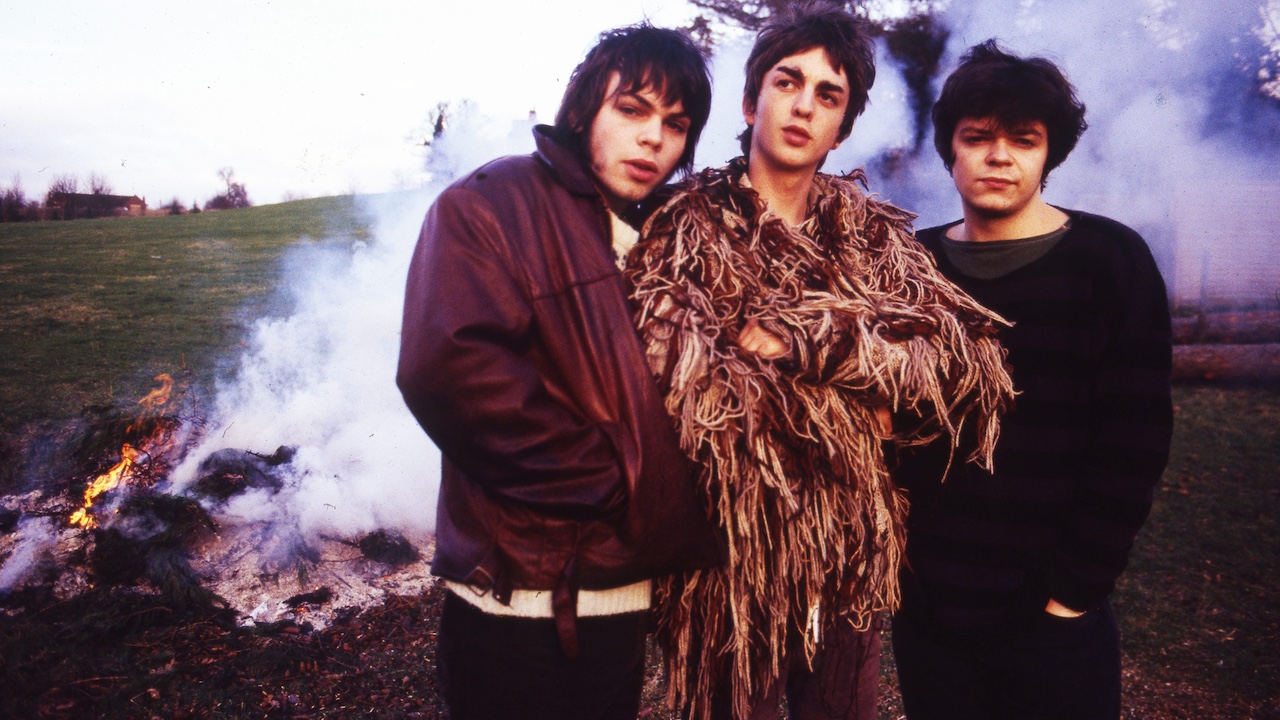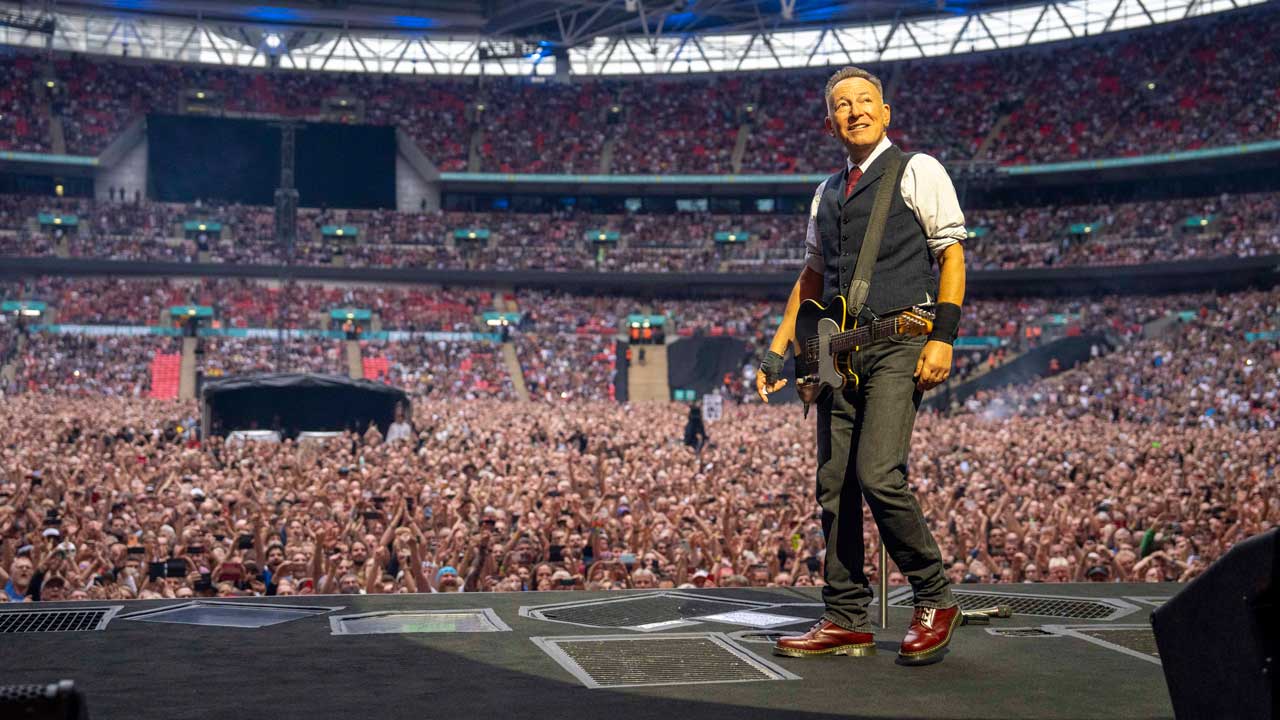“I left my car with all the instruments in but I’d left the handbrake off and it rolled onto the motorway”: the tearaway Britpop teenagers whose knack of getting into trouble had Steven Spielberg on the phone wanting to make a TV show with them
Police arrests, car crashes and a very warped drumkit – the E.T. director foresaw some TV gold and wanted in

Select the newsletters you’d like to receive. Then, add your email to sign up.
You are now subscribed
Your newsletter sign-up was successful
Want to add more newsletters?

Every Friday
Louder
Louder’s weekly newsletter is jam-packed with the team’s personal highlights from the last seven days, including features, breaking news, reviews and tons of juicy exclusives from the world of alternative music.

Every Friday
Classic Rock
The Classic Rock newsletter is an essential read for the discerning rock fan. Every week we bring you the news, reviews and the very best features and interviews from our extensive archive. Written by rock fans for rock fans.

Every Friday
Metal Hammer
For the last four decades Metal Hammer has been the world’s greatest metal magazine. Created by metalheads for metalheads, ‘Hammer takes you behind the scenes, closer to the action, and nearer to the bands that you love the most.

Every Friday
Prog
The Prog newsletter brings you the very best of Prog Magazine and our website, every Friday. We'll deliver you the very latest news from the Prog universe, informative features and archive material from Prog’s impressive vault.
Whilst it might be hard to believe now that most of the main players are back out there as middle-aged ringleaders of variously euphoric nostalgia-fests, once upon a time Britpop felt young and fresh and raw, the sound of a new generation taking over. To put it into context: Jarvis Cocker felt like Britpop’s grandad at the point that Pulp finally blew up big in 1995 after a decade and more of trying. He was 31.
But that’s because, for the most part, Britpop was a musical movement made up of giddy up’n’coming whippersnappers, and they didn’t come more giddy up’n’coming whippersnappers than Oxford trio Supergrass.
Their youthful exuberance ran right through the music they made – the buoyant, throwaway optimism of their classic single Alright is a song that could only have been made by people whose souls have not been polluted with even an ounce of feeling jaded – and also presented itself in some of the high jinks Gaz Coombes, Mick Quinn and Danny Goffey got up to.
They were full of mischievous tales and innocent menace, like a band that had been formed by Dennis The Menace. Take their joyously clattering debut single Caught By The Fuzz, which documents the true story of Coombes being arrested as a teenager.
“I remember being sat in the car the day after it all happened when I got arrested, and Danny was coming up with lines in the car, just going ‘Caught by the fuzz’, laughing,” Coombes told this writer a few years ago. “We had no idea it was gonna take off like it did.” “I was playing it on guitar,” added Goffey, “and this guy Darryl was in a towel and stuck his head round the corner and went, “I was still on the buzz!”
Drummer Goffey also ran me through another of the band’s mishaps involving his battered old car. This tale didn’t make it into one of their songs.
“I remember I had this purple Escort, a really shit Escort,” he began. “I left my car with all the instruments in, went in to see Gaz when he was living with his mum, so I was 17 or so, we went to the cottages and had a spliff and a glass of wine or something, I came out and my car wasn’t there.”
The latest news, features and interviews direct to your inbox, from the global home of alternative music.
Casting his eye further down the slip road where he’d parked it, Goffey noticed a bit of a commotion at the bottom.
“On the motorway there was this big accident and I realised I’d gone into Gaz’s but I’d left the handbrake off and it had rolled down onto the motorway and a car had smashed into it. I ran back in and said ‘Gaz I’m gonna have to run away, something really bad has happened, I don’t know what to do’. The police were there and I went back out and said, ‘Yeah, it’s my car… but I wasn’t in it’. I wasn’t driving it so it was fine. But someone had driven into it and had to be cut out by the ambulance.”
It was at this point that Goffey looked up and saw the horror etched across my face. “They were fine! They were totally fine!” he insisted. “It was a Volvo, a really strong Volvo, that had crashed into it. All our gear was smashed up in the back. My drumkit broke and Nick’s bass was in there. I said, ‘When I went in, there was a gang of kids mucking about, I think they might have pushed my car…’. I got fined and some points and didn’t lose my licence. But I got a warped drumkit out of it.”
Somehow, these sticky, not-a-dull-moment situations brought the band to the attention of Steven Spielberg, with “his people” calling “their people” to enquire as to whether the band would be open to discussing some ideas. The legendary director had been the band’s exuberant video for Alright and was interested in having them as the leads in a Monkees-style TV show.
“They asked us if we wanted to go over and meet him at his offices at Universal Studios,” Coombes told me. “We were welcomed by Bunny, his assistant, and it was quite mad. When we first met, we shook hands and stuff and I sat down next to him and I got on to talking about the old Twilight Zones, going ‘I love that one…’ and we bonded immediately on 50s Twilight Zone which was cool. Maybe that was me trying to anticipate the inevitable cheesy approach that was going to be suggested, the band living in a house together like The Monkees.”
Ultimately, though, the band turned down the man behind E.T. and Raiders Of The Lost Ark. “It was flattering and really cool, great to meet him, but really obvious to all of us that we didn’t want to do it and take that shortcut, fast-track it through the States,” Coombes said. “You could end up dying in a hotel room or something… then the production just wants one of us for the next series. It was just quite funny… respectfully very funny.”
Whilst it might have denied us some of the stellar records that Supergrass went on to make, music where they began to grow out of the juvenile escapades of their early days (well, ish, they always retained a healthy level of playfulness), a Spielberg-made Supergrass show would’ve been great fun. Just imagine how the master director, for example, would’ve expertly handled the episode where the drummer gets stoned and leaves his car to roll down a hill onto the highway. We were denied.
Niall Doherty is a writer and editor whose work can be found in Classic Rock, The Guardian, Music Week, FourFourTwo, Champions Journal, on Apple Music and more. Formerly the Deputy Editor of Q magazine, he co-runs the music Substack letter The New Cue with fellow former Q colleague Ted Kessler. He is also Reviews Editor at Record Collector. Over the years, he's interviewed some of the world's biggest stars, including Elton John, Coldplay, Radiohead, Liam and Noel Gallagher, Florence + The Machine, Arctic Monkeys, Muse, Pearl Jam, Depeche Mode, Robert Plant and more.
You must confirm your public display name before commenting
Please logout and then login again, you will then be prompted to enter your display name.

